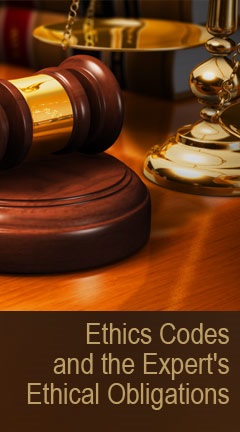Archival Notice
This is an archive page that is no longer being updated. It may contain outdated information and links may no longer function as originally intended.
Home | Glossary | Resources | Help | Course Map
It is important for the expert to become aware of the ethical obligations under the ethics codes of the appropriate certifying bodies and professional associations.
For example, members of the American Academy of Forensic Sciences (AAFS) are prohibited from making material misrepresentations of their education or of the data upon which their professional opinions are based. If an AAFS member is found to have violated the code, an ethics committee may impose sanctions, such as censure, suspension or expulsion from the organization.
Some courts have sanctioned experts for their unethical behavior. Attorneys have been sanctioned by the American Bar Association (ABA) for abusing an expert witness on cross-examination.
The ABA standards relating to the Administration of Criminal Justice also set forth standards for prosecutors and defense counsel to follow when working with expert witnesses in criminal trials. The standards indicate that the attorney should:
- Respect the expert's independence.
- Not dictate the formation of the expert's opinion.
- Not pay excessive or contingent fees, which is considered unprofessional conduct.


